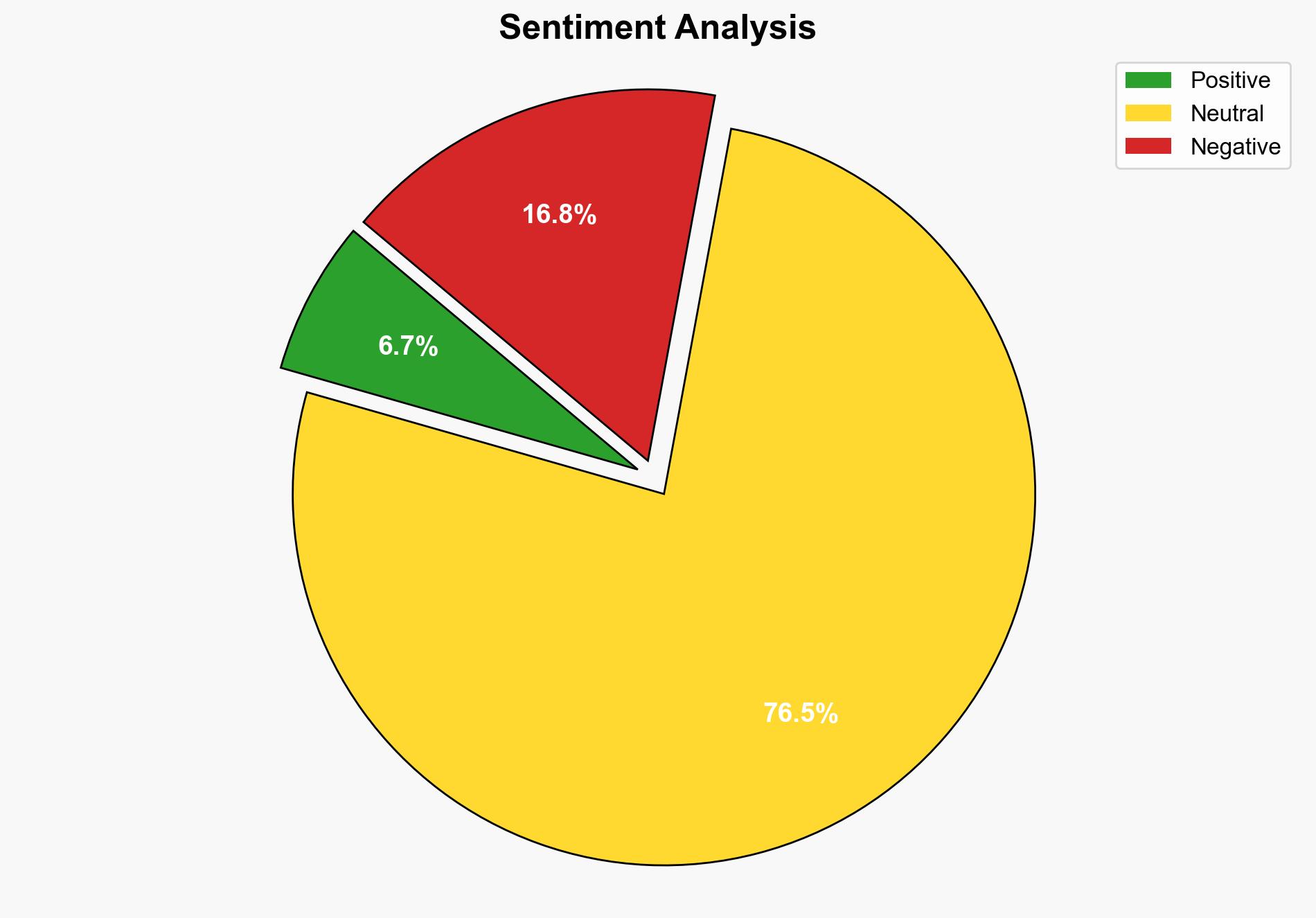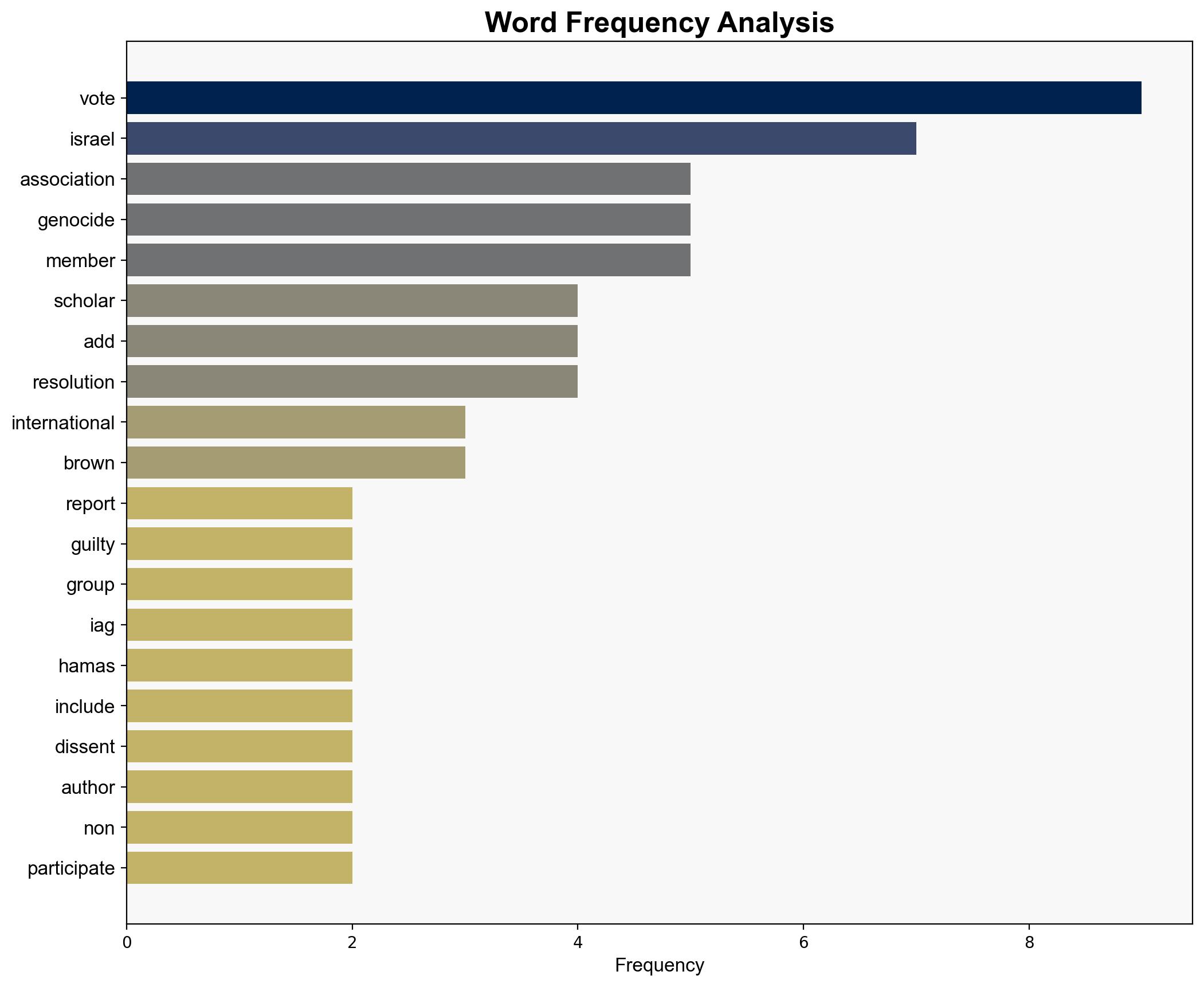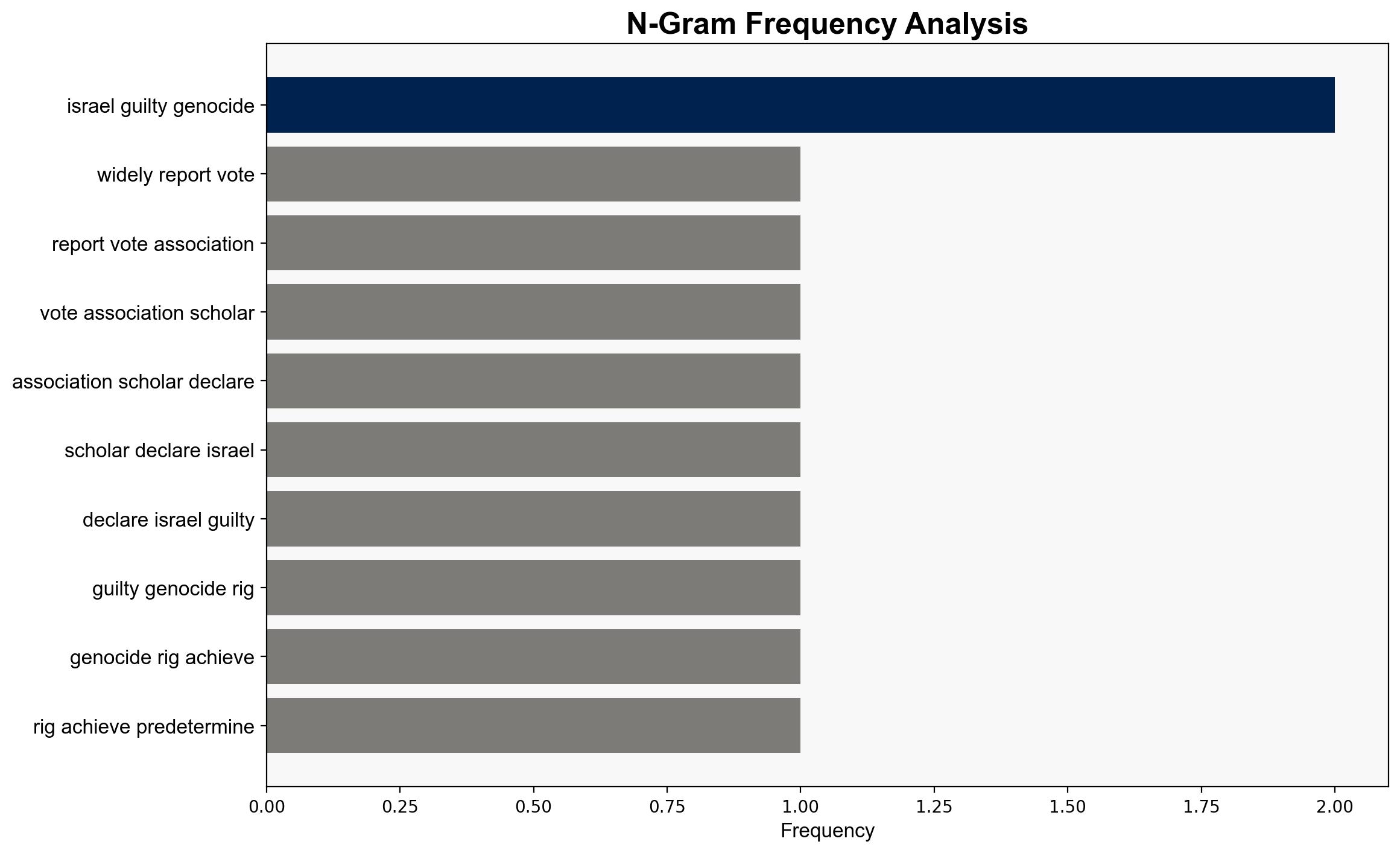Rigged Genocide Scholar Blows Whistle on Anti-Israel Association – Breitbart News
Published on: 2025-09-02
Intelligence Report: Rigged Genocide Scholar Blows Whistle on Anti-Israel Association – Breitbart News
1. BLUF (Bottom Line Up Front)
The most supported hypothesis is that the vote by the International Association of Genocide Scholars (IAGS) was influenced by non-scholarly and activist elements, potentially skewing the outcome against Israel. This conclusion is based on the presence of non-scholars in the voting process and the lack of transparency. Confidence in this assessment is moderate due to limited corroborative data. Recommended action includes monitoring similar organizations for biased decision-making processes and engaging in diplomatic efforts to address potential misinformation.
2. Competing Hypotheses
1. **Hypothesis A**: The IAGS vote was a legitimate scholarly consensus that concluded Israel’s actions in Gaza constitute genocide. This hypothesis suggests that the vote reflects a genuine academic assessment based on available evidence.
2. **Hypothesis B**: The IAGS vote was manipulated by non-scholarly and activist influences, leading to a predetermined outcome against Israel. This hypothesis is supported by reports of non-scholars participating in the vote and the lack of open debate.
Using the Analysis of Competing Hypotheses (ACH) 2.0, Hypothesis B is better supported due to the presence of non-scholarly participants and the lack of transparency in the voting process, as highlighted by dissenting members.
3. Key Assumptions and Red Flags
– **Assumptions**:
– Hypothesis A assumes that all participants in the vote were acting in good faith based on scholarly evidence.
– Hypothesis B assumes that non-scholarly influences can significantly alter the outcome of such votes.
– **Red Flags**:
– Lack of transparency in the voting process.
– Reports of non-scholars and activists participating in the vote.
– Absence of open debate and dissenting opinions being stifled.
– **Blind Spots**:
– Limited information on the internal dynamics of the IAGS.
– Potential bias in the reporting source (Breitbart News).
4. Implications and Strategic Risks
– **Geopolitical Risks**: The vote could exacerbate tensions between Israel and international bodies, potentially affecting diplomatic relations.
– **Psychological Risks**: The perception of biased academic assessments could undermine trust in scholarly institutions.
– **Cascading Threats**: Similar processes in other organizations could lead to widespread misinformation and biased policy recommendations.
5. Recommendations and Outlook
- Engage in diplomatic dialogue with IAGS and similar organizations to promote transparency and scholarly integrity.
- Monitor and counteract misinformation campaigns that may arise from biased academic conclusions.
- Scenario Projections:
- Best Case: Increased transparency and scholarly integrity in international organizations.
- Worst Case: Further polarization and misinformation leading to diplomatic conflicts.
- Most Likely: Continued debate and scrutiny over the legitimacy of such votes.
6. Key Individuals and Entities
– Sara Brown: Critic of the IAGS vote process.
– Joel Pollak: Senior editor at Breitbart News, provided commentary on the issue.
7. Thematic Tags
national security threats, misinformation, geopolitical tensions, academic integrity





